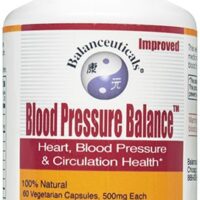Adrenal Fatigue – Chronic Stress Response
Adrenal fatigue is a collection of symptoms which develop when the adrenal glands are unable to function at their optimum level. Though it usually develops after periods of prolonged stress, adrenal fatigue can occur after severe infections.
Why does Adrenal Fatigue occur?
Everyone has stress in their life. As humans we developed the natural Fight or Flight reaction to our environment long ago. It’s base function is to kept us safe. Although most people don’t encounter predators such as tigers and alligators – unless you are on a reality TV show, this Fight or Flight was the brain’s trigger to get out of harms way.
In today’s modern world stressors can come in many forms such as:
- Getting the kids fed, dressed and off to school in time
- The roadway traffic jams on our way to work
- Balancing work and family life – shuffling kids to sports practice and the many other activities to keep our kids growing and engaged
- Interpersonal relationship struggles be it marriage issues, extended family or at the office
- Health concerns – Dealing with personal or family ill health, disease / cancer. Losing a loved one (human or pet)
- Financial concerns – loosing a job, taxes, buying a new car, having an accident, getting a traffic / speeding ticket, buy / selling / losing a home
- Major life events such as getting married, getting divorced, buying / selling a home, new job or losing a job
Check out: Beat Your Stress Hormone – 9 Natural Ways
Adrenal Fatigue Phases
The body’s stress response is characterized by the following three phases:
Phase 1 – Alarm Phase
This first phase of the body’s response to stress which is also known as the acute stress response, develops when the person encounters something that they perceive as a threat. The adrenal glands release stress hormones like adrenaline which prepares the person to fight or flee from the source of stress.
As a result of the secretion of adrenaline, the blood pressure, heart rate and breathing rate increase and the blood is shunted from the digestive system and taken to the muscles in the hands and legs.
This type of stress can be caused by everyday occurrences like arguments and traffic jams. After the person deals with the stressful situation the body recovers and the hormones that were elevated return to their normal levels within 30 minutes to 60 minutes.
Phase 2 – Resistance Phase
This second phase develops when the person is exposed to continued stress–which forces the body to respond before it recovers completely from the first stressful event. The adrenal glands also respond by secreting stress hormones like cortisol.
The release of cortisol also results in elevated blood pressure and heart rate as well as craving carbohydrates to provide the body with a source of energy.
Other symptoms that may be experienced by patients in this phase include irritability, malaise, anxiety, depression, low libido, difficulty sleeping and concentrating.
Phase 3 – Exhaustion Phase
This third phase is also known as adrenal fatigue. Here, essentially, burnout develops because the person has been exposed to stress for a long time. The body loses its ability to cope with the stressful event since the adrenal glands cannot keep up with the signals sent by the nervous system to release hormones.
Symptoms associated with this stage include extreme fatigue and difficulties completing everyday activities. During this stage other body organs begin to suffer the effects of continued stress on the body. This results in the development or aggravation of stress related illnesses like high blood pressure, heart disease, rheumatoid arthritis and other autoimmune diseases.









